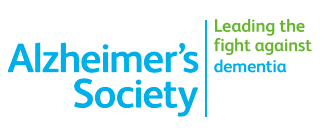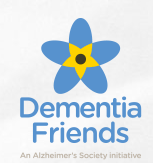About Dementia
If you're becoming increasingly forgetful, particularly if you're over the age of 65, it may be a good idea to talk to your GP about the early signs of dementia.
As you get older, you may find that memory loss becomes a problem. It's normal for your memory to be affected by age, stress, tiredness, or certain illnesses and medications. This can be annoying if it happens occasionally, but if it's affecting your daily life or is worrying you or someone you know, you should seek help from your GP.
What is dementia?
Dementia is a common condition that affects about 800,000 people in the UK. Your risk of developing dementia increases as you get older, and the condition usually occurs in people over the age of 65.
Dementia is a syndrome (a group of related symptoms) associated with an ongoing decline of the brain and its abilities. This includes problems with:
- memory loss
- thinking speed
- mental agility
- language
- understanding
- judgement
People with dementia can become apathetic or uninterested in their usual activities, and have problems controlling their emotions. They may also find social situations challenging, lose interest in socialising, and aspects of their personality may change.
A person with dementia may lose empathy (understanding and compassion), they may see or hear things that other people do not (hallucinations), or they may make false claims or statements.
As dementia affects a person's mental abilities, they may find planning and organising difficult. Maintaining their independence may also become a problem. A person with dementia will therefore usually need help from friends or relatives, including help with decision making.
Your GP will discuss the possible causes of memory loss with you, including dementia. Other symptoms can include:
- increasing difficulties with tasks and activities that require concentration and planning
- depression
- changes in personality and mood
- periods of mental confusion
- difficulty finding the right words
Most types of dementia can't be cured, but if it is detected early there are ways you can slow it down and maintain mental function.
Read more about the symptoms of dementia.
Why is it important to get a diagnosis?
An early diagnosis can help people with dementia get the right treatment and support, and help those close to them to prepare and plan for the future. With treatment and support, many people are able to lead active, fulfilled lives.
Read more about how dementia is diagnosed.
Alzheimers Society
 Alzheimer's Society is a membership organisation, which works to improve the quality of life of people affected by dementia in England, Wales and Northern Ireland.
Alzheimer's Society is a membership organisation, which works to improve the quality of life of people affected by dementia in England, Wales and Northern Ireland.
Many of our 20,000 members have personal experience of dementia, as carers, health professionals or people with dementia themselves, and their experiences help to inform our work. For more information visit www.alzheimers.org.uk
Age UK
 Age UK is the country's largest charity dedicated to helping everyone make the most of later life. They provide services and support at a national and local level to inspire, enable and support older people.
Age UK is the country's largest charity dedicated to helping everyone make the most of later life. They provide services and support at a national and local level to inspire, enable and support older people.
For more information visit www.ageuk.org.uk
Dementia Friends
 People with dementia sometimes need a helping hand to go about their daily lives and feel included in their local community. Dementia Friends gives people an understanding of dementia and the small things they can do that can make a difference to people living with dementia from helping someone find the right bus to spreading the word about dementia.
People with dementia sometimes need a helping hand to go about their daily lives and feel included in their local community. Dementia Friends gives people an understanding of dementia and the small things they can do that can make a difference to people living with dementia from helping someone find the right bus to spreading the word about dementia.
For more information visit www.dementiafriends.org.uk
Dementia UK is a one-stop resource that provides practical, easy-to-understand information for:
- People with early stages of dementia
- People who have not been diagnosed with dementia but want to reduce their risk
- Friends and Family
- Caregivers
- Physicians and other health professionals
- Licensed residential care-giving facilities
For more information visit www.dementiauk.org